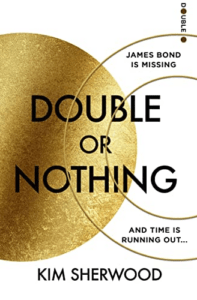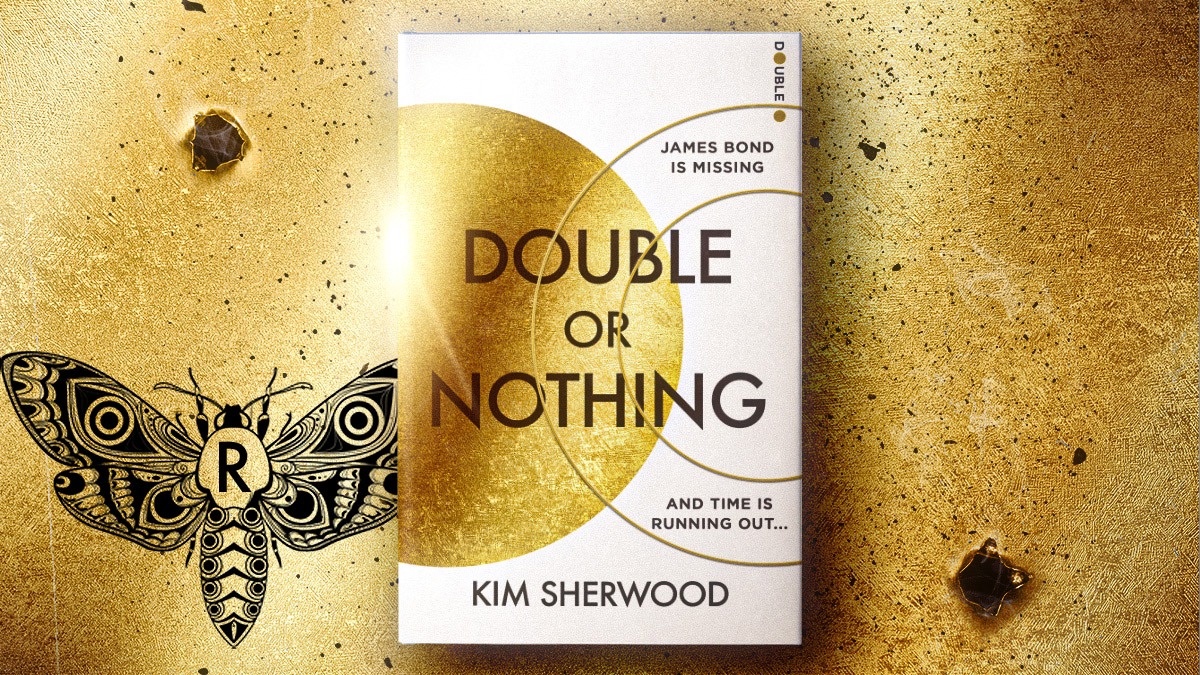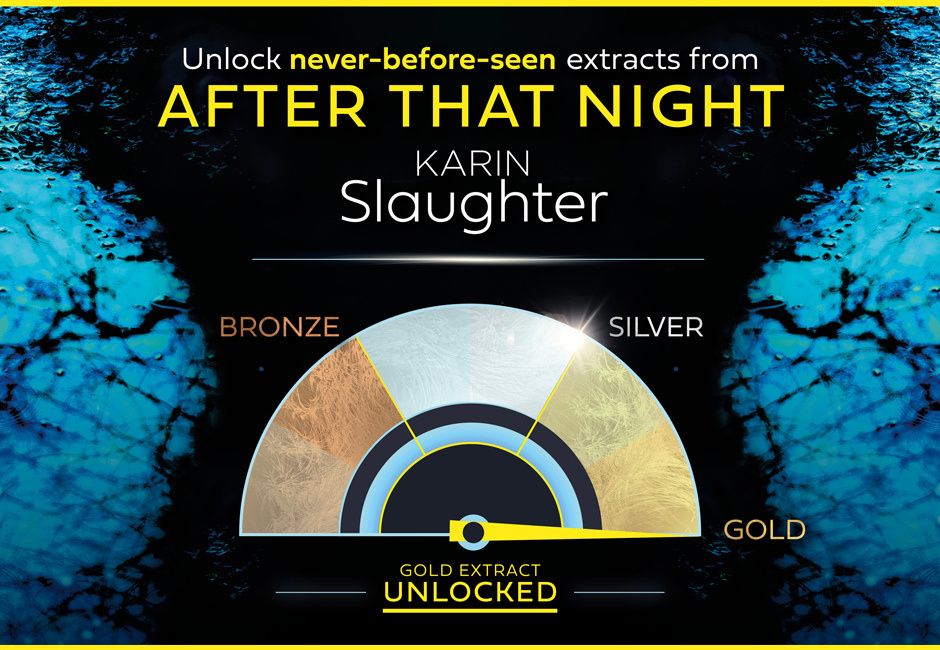
James Bond is missing. 007 has been captured, perhaps even killed, by a sinister private military company. His whereabouts are unknown.
Meet the new generation of spies…
Johanna Harwood, 003. Joseph Dryden, 004. Sid Bashir, 009. Together, they represent the very best and brightest of MI6. Skilled, determined and with a licence to kill, they will do anything to protect their country.
The fate of the world rests in their hands…
Tech billionaire Sir Bertram Paradise claims he can reverse the climate crisis and save the planet. But can he really? The new spies must uncover the truth, because the future of humanity hangs in the balance.
Time is running out.
The start of a brand new trilogy following MI6’s agents with a licence to kill, that blows the world of James Bond wide open!
Chapter 1
An Appointment with the Devil
The White Helmet said, ‘To save one soul is to save all of humanity.’
Sid Bashir didn’t take the shot. He lowered his camera. His finger lifted from the shutter release.
The White Helmet gave him a friendly knock on the arm. ‘You must know this, brother. The White Helmets are committed to these words from the Quran. Whoever saves a life, saves all of humanity.’
Bashir bowed his head. ‘My mother used to tell me that.’
‘May Allah bless her. She taught you well. I used to carry arms. But it is better to give my life to my people than take lives.’
‘May Allah bless your family also.’ Bashir gripped the bench seat as the truck swerved to avoid a crater. His chest was tight with smoke, which had poured down his
throat like concrete eager to fill a void as he followed the Syrian search-and-rescue volunteers into the fire, digging through rubble for survivors in the long minutes’ wake of a cluster bomb, the Red Crescent warehouse groaning, keening, until it swayed, walls crumpling, and crashed in a cloud of render. Bashir pulled the sleeve of his battered Barbour back from his Casio watch. There was a gash on his forearm. He wiped blood from his watch face. Every vanishing second reduced her chances. Five minutes until the drop.
The man beside him removed the white helmet with his name written in indelible pen, shook dust and debris free from his hair, and replaced the helmet. He played along as Bashir took his portrait, but the gaze fixed on Bashir was probing. ‘I have known other photojournalists, sir. Even other men from Reuters. I have seen them pull victims into their cars and drive them to hospitals under live fire. Shield children from shells. Give their flak jackets away.’ The White Helmet sniffed. ‘But I’ve never seen a photojournalist do any of that without taking a photograph first. You ran into the fire, and you didn’t take a single shot. Not until we’d cleared the dead for burial. You might be a noble man. But you are not a war photographer. And you hold your camera like a gun.’
Bashir looked down. Three fingers on the grip, thumb on the barrel, finger at the trigger. His heart was haring. ‘It’s my first war.’ He tried a smile. ‘I haven’t developed a defence against my humanity yet.’
The man studied Bashir. The thick sweat of the other volunteers in the cabin, the squeak of their fireproof overalls, the screams of pain from the medical truck behind, the wind chasing down the mountainside to push
at the wheelbase, the sudden rumble overhead, the muscles in each man’s thighs tensing, carrying them to their feet before anyone exchanged a word, until one raised a hand and called, ‘It’s only a civilian aircraft’ – it all filled the breach of silence. The White Helmet shrugged. ‘I do not think so, sir. I think you are more concerned for your own little war than ours. But I thank you for your help. You may have saved your soul, today. I believe this is where you wished to be dropped . . . for your next photo assignment.’
Bashir could not summon a reply, and had no chance to do so, the truck rolling to a stop.
The White Helmet clapped his palms together, a slick stickiness, as if wiping his hands free of Bashir. But still he added, ‘Remember, brother: to save one soul is to save all of humanity.’
Bashir had to stoop as he rose. His mother had raised him to keep that sentiment tucked into his heart, though he had long since subscribed to another philosophy. Sid Bashir had been given a number and licence to kill. He was 009, and to him the faith that saving one soul could save something of the world’s humanity was harder to maintain in the face of the calculations his job demanded. He would more readily sacrifice one life for the good of the many. It might be cold, but then logic didn’t have a heart with corners to spare.
Tonight, though – tonight, Bashir would try to save just one life, one soul, and if it did not matter a great deal to the world, it mattered a great deal to him.
The doors opened. Bashir gave his thanks and jumped onto a single road snaking the foot of the mountains, the beaten earth and blistered tarmac etched by a faint moon.
The trucks rattled on, headlights fading, and with them the sound of the engine, until the only thing that moved on the hulking slope of the mountain was one small black spot, the figure of Bashir inching ever upwards, his outline stretched, flung and swallowed in the pinstripe shadows of pine trees. As the minutes ticked down, high above a second black spot seemed to ripple from the lily pad shadow of drifting clouds, descending the mountain. This second black spot zig-zagged, and its own shadow was distorted by the unmistakable silhouette of a gun. The gun, and the shadow, belonged to Corporal Ilyasov, who was serving his first mission for Rattenfänger PMC.
Rattenfänger PMC offered a year’s average salary in whatever denomination you worshipped for just one month’s service and a trip to the Front, wherever the Front happened to be, however official or unofficial – Yemen, a concert hall or temple, the Central African Republic, a subway in a world capital. PMC stood for Private Military Company, or Pretty Much Crap, because to call Rattenfänger a private military company was like calling the mafia a social club. Registered in ever-changing shell companies, Rattenfänger were terrorists for profit, marauders who turned fluid situations into war zones and peaceful streets into settings for the nightly news. Their soldiers and bases were international. Their fingerprints were all over embassy bombings, kidnapping, grand larceny, under-reported civil wars, and data breaches. But those fingerprints could never be traced, and neither could their backers.
None of that mattered to Corporal Ilyasov, apart from the 1,240,000 roubles a month. He had a wife and three children, and that mattered a lot. Before Rattenfänger, Ilyasov might have hoped to earn that in a year, if he held
his pockets wide open. This was his first posting. Pulling off his mask so he could spit out the taste of that evening’s third-rate vodka, Ilyasov continued down the mountain, treading carefully, just as they’d taught him in Molkino. Though there was little risk of attack so far into Assad’s territory, and so far up this godforsaken rock where nothing worth a damn grew. That was why they’d chosen the eastern slopes for the makeshift black site, the mountain showing its back to the Mediterranean and the few towns that straggled down towards Tripoli.
The ground beneath his boots was hard but the trees clung to their fir coats. Ilyasov peered up to locate the moon, but she was sulking, just like him. He didn’t see the point in patrolling so far out from the base – suspected Colonel Mora of punishing him for winning at cards. The other boys were watching the show, and he was listening to the wind.
Ilyasov was calculating how much longer the woman they were holding would last when a shape in the trees moved too quickly to be a swaying branch, and then a glitter in the black told him a knife was spinning towards him. That information registered too late. The knife found his jugular and Ilyasov pitched sideways.
The last thing he was conscious of was a boot tipping him onto his back, and then a needle-thin light on his face. In its trembling beam, Ilyasov made out eyes like antique gold and a nose that bumped over a break. He had only another thirty seconds to live, and would not report this to anyone.
Ilyasov’s body would be returned to his wife by a courteous, silver-haired gentleman, who would leave five million roubles of ‘insurance money’ on the kitchen table,
along with a medal for blood and bravery. When his wife called up newspapers and her local councilman to demand answers, she would be shown her error by foreign men in cheap, dark suits.
Bashir pulled the flat throwing knife free and cleaned the blade on the dead man’s arm, at the bicep, where he expected a Syrian flag. He turned the torch onto the man’s sleeve. Nothing. He looked back at the face.
Bashir tapped his earpiece. ‘How do you feel about surprises, boss?’
A chirp, then Moneypenny’s voice: ‘Depends who jumps out of the cake, 009.’
‘I know you were hoping for worn out soldiers of the Syrian Armed Forces. But how about a well-armed, well-trained, if very dead, soldier with no flag?’
‘Rattenfänger?’
‘Quiet extraction is looking like wishful thinking.’
‘Stand by, 009.’
Bashir scanned the trees, hunting for a sign of a second patrolman. He remembered Bill Tanner briefing him and the other new recruits about Rattenfänger. Bill had been perched on the desk at the front of the seminar room, and rolled his sleeves up as if settling into a bedtime story: a folk tale for the ages. ‘Rattenfänger are out to make money, whether that’s by holding a city to ransom, or lending their services to the highest bidder. Every member has a stake in the profits. Like a diabolical Waitrose.’ Bill laughed at his own joke, then hunched closer for the grisly part. ‘For those who flunked German, Rattenfänger means Rat Catcher, the original name of the Pied Piper. They earned their name bombing a school track and field day after a Russian oligarch refused to pay Rattenfänger for
their services kidnapping the son of this oligarch’s rival. They killed their own client’s son, and his whole class too, and were paid for their efforts by the original target. The US levelled both businessmen with sanctions. The rival shrugs and says: I am a businessman. That is all. If they want to see the devil, let them see him. But that’s overstating his position. He’s only a disciple. Rattenfänger are the real devil.’
009 waited for the devil now. M had denied permission to carry a handgun into Syria, in case he was searched as a photojournalist. Bashir was glad of the throwing knife now, which he’d concealed in the hinges of his camera case, knowing Customs would consent to a hand search in order to avoid X-rays damaging the lenses. Rattenfänger had shot 008 in the head last month and left him in the scrub in the Central African Republic. And Donovan had been good. Still, Bashir bent down, prised the RPK-74M from the dead mercenary’s hands, and slung it over his shoulder. Then he took the man’s radio, lowered the volume, and pocketed it.
‘Home front to 009. Stand down. I say again, stand down.’
Bashir felt his body temperature drop. ‘That’s a bad copy, say again?’
‘Listen, 009. Rattenfänger must be leasing the base. Q says Rattenfänger’s SOP is to station at least thirty agents inside the compound, most likely alongside the Syrian Armed Forces. The chance of mission success is less than zero. We don’t even know she’s alive. It’s been nineteen days. You know the odds.’
Bashir chewed his lip. He wondered if Moneypenny was conscious of slipping from the language of a strategist,
the language she used when hoping to appeal to Bashir’s better angels, to the language of a gambler – into his language. So: what would Bond say? Life is nothing but a heap of six to four against, Penny. That doesn’t mean I leave the table. But that didn’t help him. What would 009 say?
‘She’s more valuable than I am. This isn’t a zero-sum game. My death is worth the chance of her life.’
White noise. Then: ‘As romantic as that is, 009, the bank wins this time. Stand down. It’s too dangerous.’
Bashir clenched his jaw. What now? Leave her to die, if she wasn’t dead already. Leave her to the devil, and only in order to save his own skin? Exfil to Istanbul, back to London, and then the Tube to the Regent’s Park office, the silent journey in the lift, the walk along the corridor, avoiding the commiserating or disappointed eyes of the others, refusing Moneypenny’s understanding, and finally facing M’s sympathetic eyes across the table, his ‘better luck next time’, when, of course, there couldn’t be one, because Bashir would have failed to save her, just as he had failed James Bond.
Bashir straightened up. ‘Someone once told me it’s always too dangerous. That’s the fun.’
‘Sid—’
A soft sound, and then that stern voice came on: ‘009?’ It was M.
‘Sir.’
‘Try and bring it off. And watch out.’
Bashir smiled. ‘Sir.’ He heard Moneypenny raising an objection, and then tapped his earpiece, silencing the debate on how short his odds were. It was then he heard a boot catching in the undergrowth.
He turned, drew the knife, threw.
A thud.
Bashir inspected the dying patrolman. A second pawn.
He slid his knife out of the man’s thorax, and eased the RPK-74M into a comfortable grip. He searched the soldier, found more magazines, which he pocketed. The camera hung from his left shoulder, and Bashir raised it now, switching to infrared. The forest was clear of moving bodies. A walled-off compound with a single watchtower crouched at the peak of the mountain, another fifteen-minute sharp hike. Bashir brought the sniper waiting there into focus, and then moved off, considering where they might set up the kitchen. In private military operations like this one, locals put on the food, usually in poorly constructed huts with little regard for regulations. That would be his strategy.




